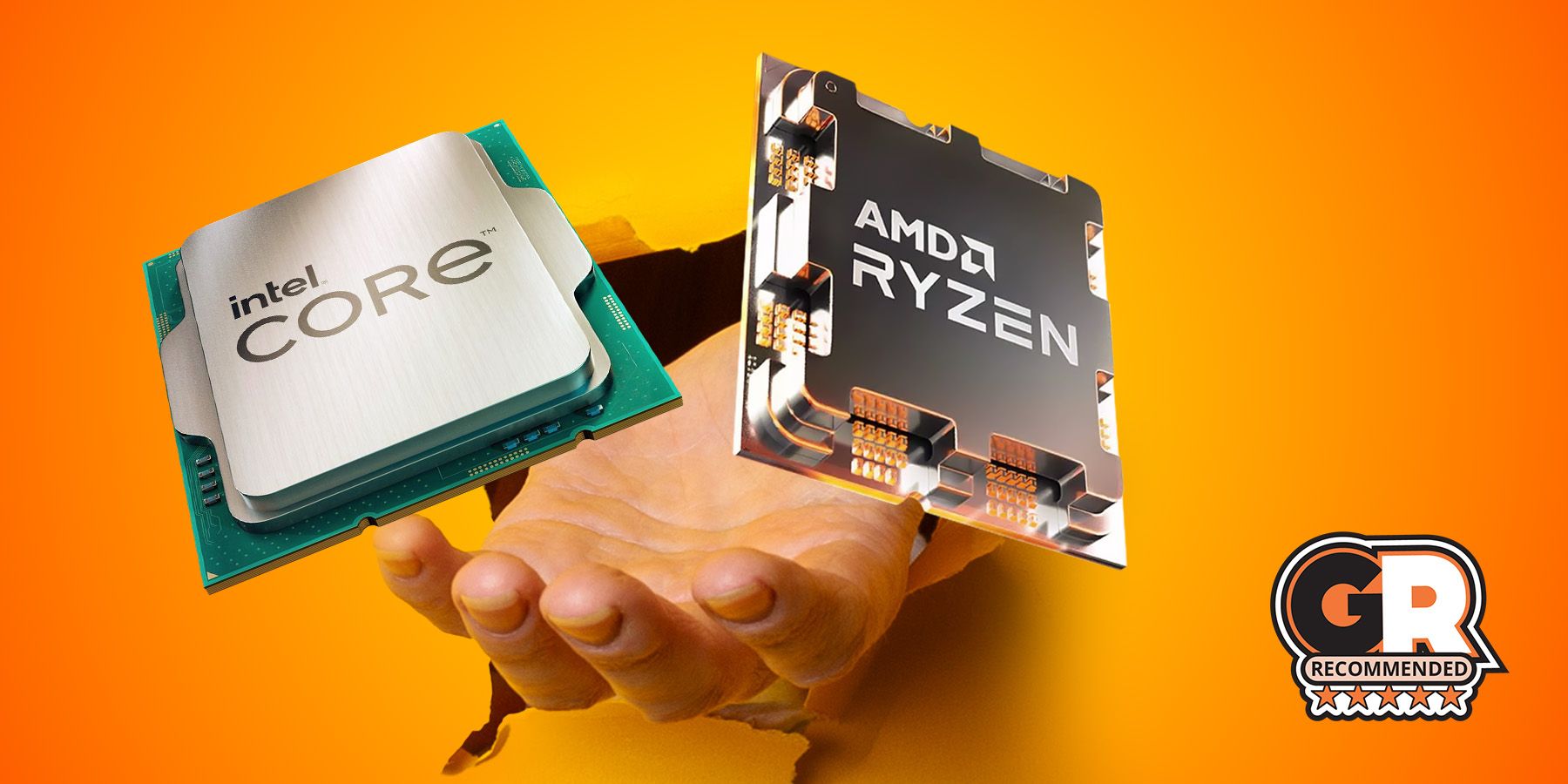
Modern PCs are far more powerful than their predecessors and can handle many tasks well beyond the basics when it comes to meeting our needs. One of these increasingly growing tasks that users purchase a CPU upgrade for is PC gaming as people value it as a more important source of entertainment, even as we see modern consoles increasingly resemble their PC counterparts.
While modern GPUs take the brunt of the budget when it comes to gaming PCs in general, the CPU is an important component that shouldn’t be ignored, lest it cause unnecessary bottlenecks for gamers, especially at higher performance tiers. CPU-induced bottlenecks can effectively limit the performance of a PC for gaming even for gamers using the latest and greatest GPU money can buy. Some CPUs are built from the ground up with features or specialized hardware to perform better for gaming than regular work due to optimizations that tend to favor performance in games and video game engines in particular, such as the Ryzen 7000 and 5000-based X3D processor lineup.
-
AMD Ryzen 7 7800X3D
The Best Overall CPU For Gaming
-
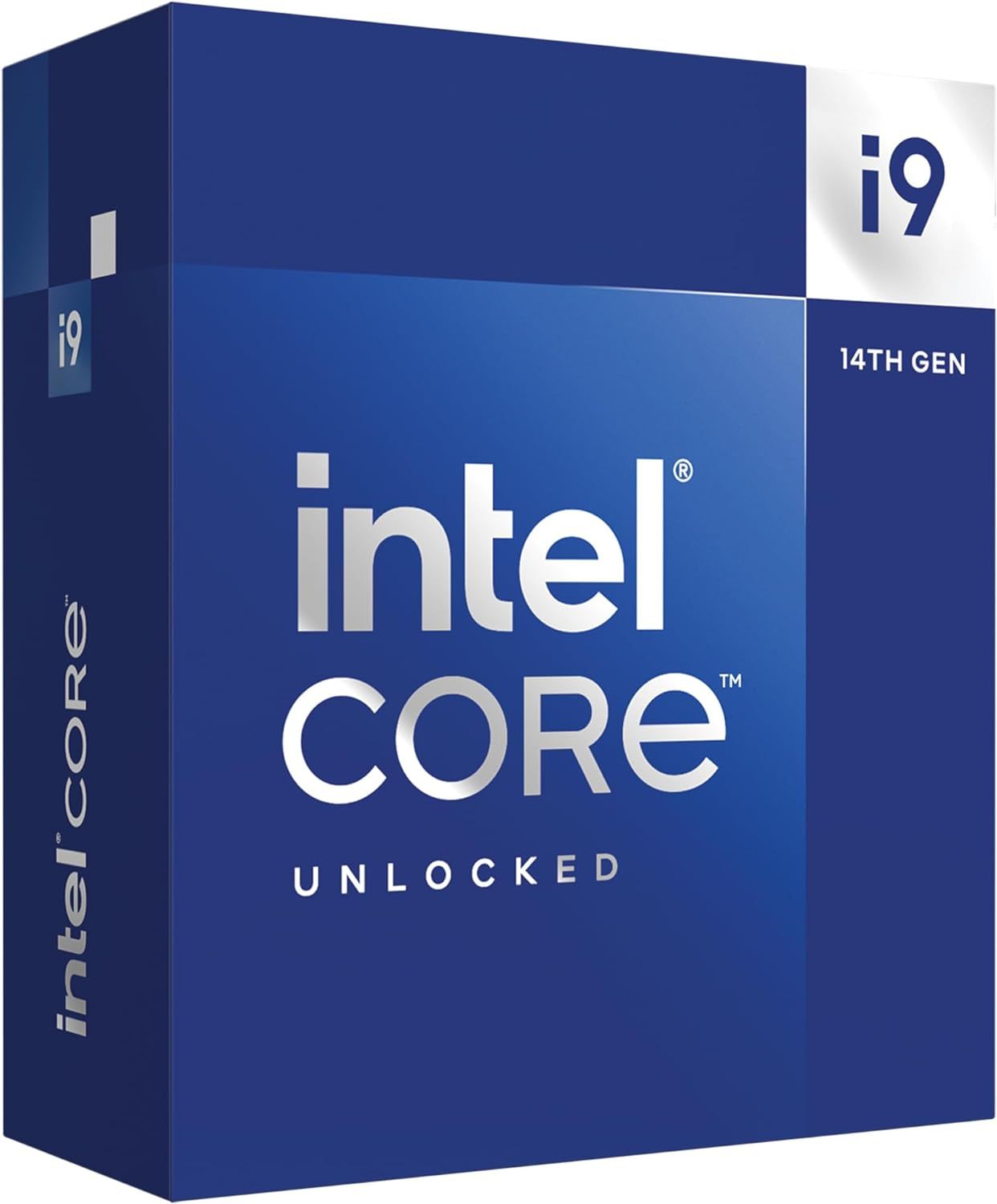
Intel Core i9 14900K 24-Core, 32-Thread CPU
The Best Performance CPU For Gaming
-
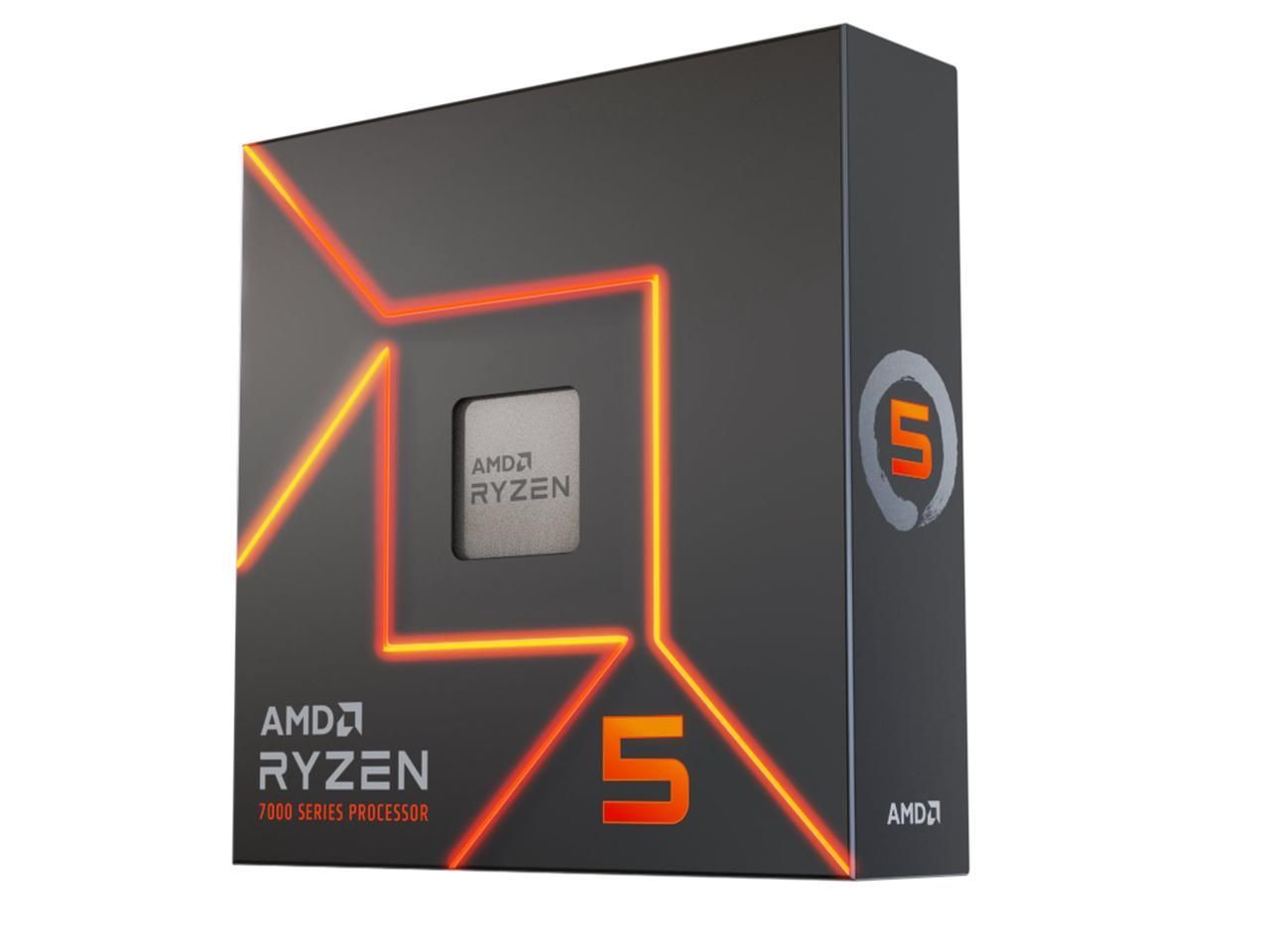
AMD Ryzen 5 7600X
Best Mid-Range CPU For Gaming
-
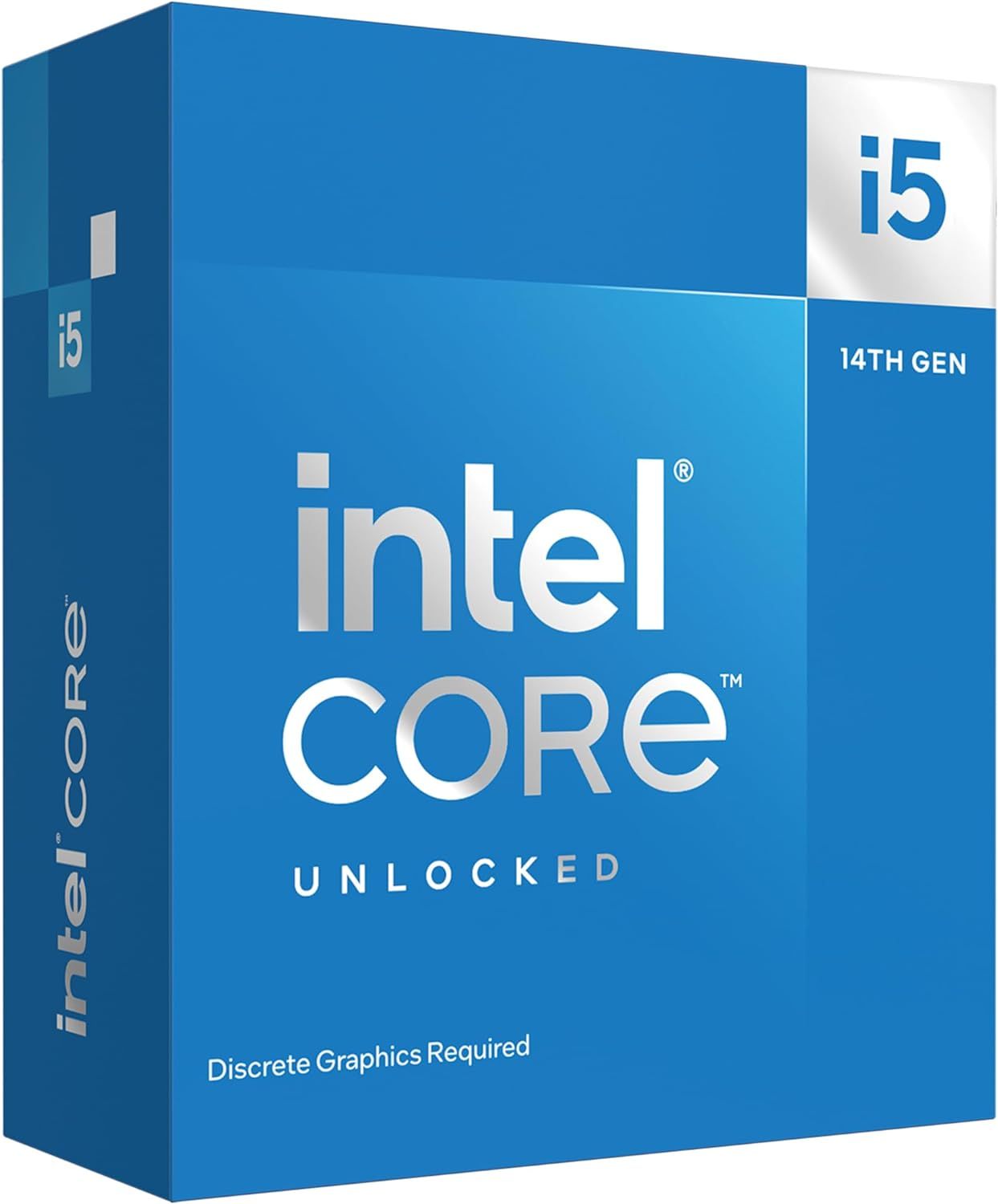
Intel Core i5 14600KF 14-Core, 20-Thread CPU
Best Value CPU For Gaming
-
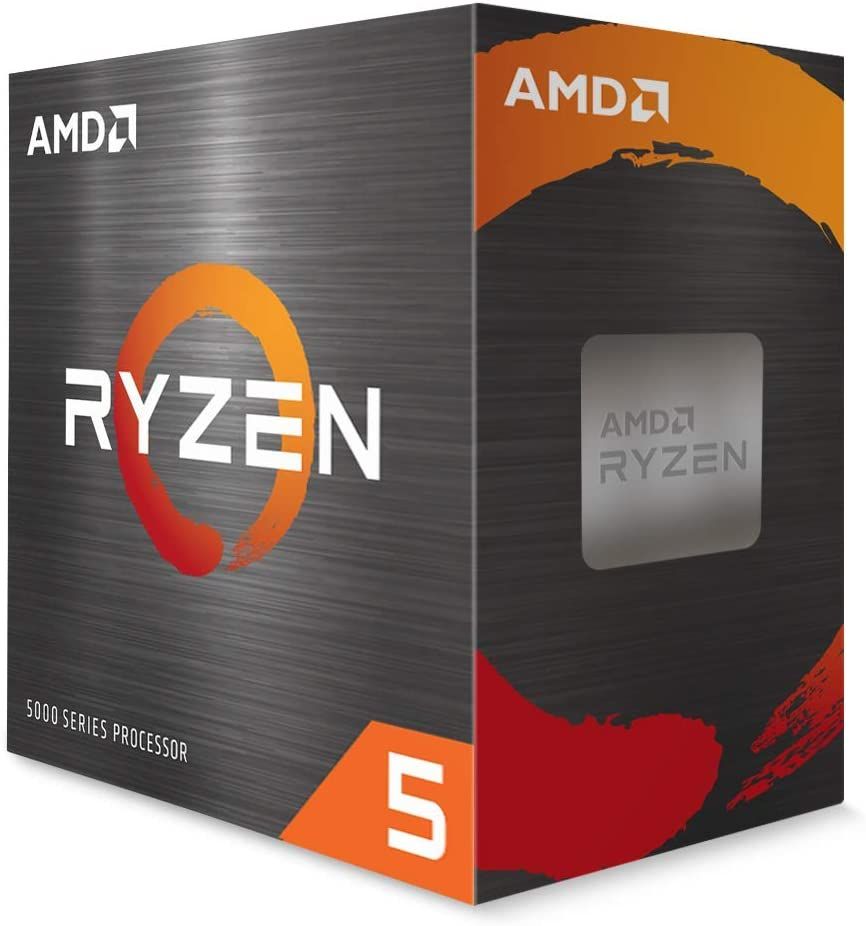
AMD Ryzen 5 5600X CPU
The Best Budget CPU For Gaming
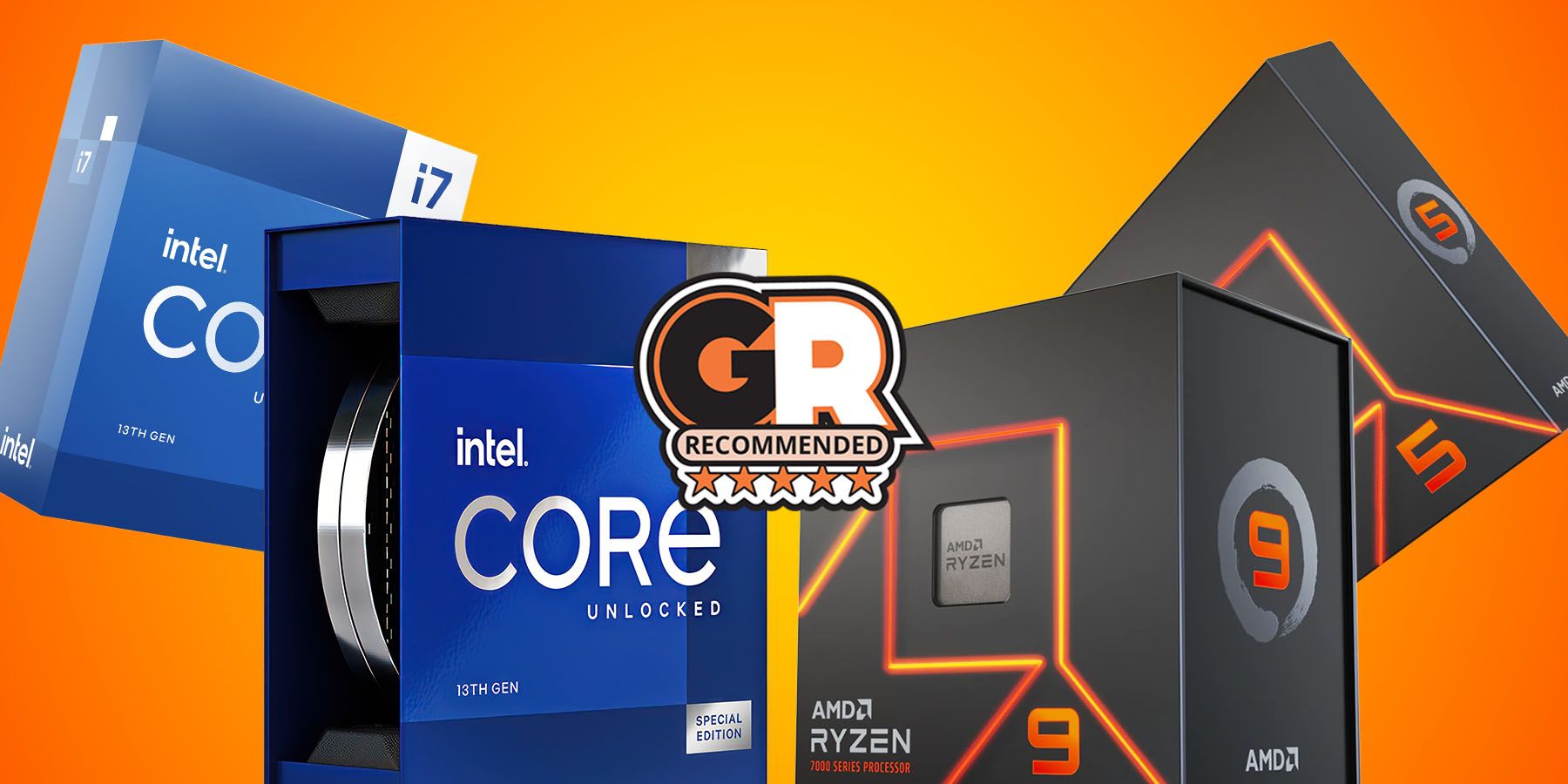
The Best CPUs in 2024
Intel, AMD, and now even ARM CPU’s are competing for the best CPU spot in gaming. How you game and what your budget is will determine this decision.
Choosing The Best CPUs For Gaming
Picking a CPU for gaming used to be a simpler affair. CPU options were few and offered significantly different performance tiers from generation to generation. Since then, due to Moore’s law arguably not being a reliable go-to anymore coupled with gains that often sit anywhere between 5-15% generation on generation, we have multiple generations of CPUs often competing at similar price points which makes gamers choose from a plethora of options to get the one CPU that suits their needs above and beyond its peers.
It is important to note that a gaming CPU’s performance and subsequent choice for gamers boils down to three key factors: Single-core performance, number of cores in play, and most importantly: pricing.
Single-Core Performance: This is perhaps the most important factor when it comes to determining how a CPU is going to factor in terms of gaming for users. Most games have a clear performance bias for single-core performance. Titles run only as fast as their primary thread can process information, making single-core performance a key metric, and by proxy, clock speeds and instructions per cycle (IPC) count important determining factors when it comes to deciding how much performance a CPU can deliver in various titles.
There are exceptions to the rule: AMD’s Ryzen 7 7800X3D CPUs use both the newer Zen 4 cores and the stacked L3 cache to allow for much faster access to larger chunks of data than most of their competing peers from Intel and AMD’s non-X3D processors can offer, making for an excellent, gaming-centric performer. While it has a lower clock speed than some of Intel’s fastest CPUs on offer such as the Core i9 14900K (5GHz vs 6GHz), it does compare considerably more favorably than Intel’s finest when performance in video games is the primary metric to be considered.
Number of Cores: As modern games and modern game engines continue to get increasingly complex, modern CPUs also handle multiple tasks and do so better than previous titles due to better scheduling, smarter game engines, and generally more distributed computing workloads. While modern hexacore CPUs more or less keep up with the needs of most titles, we have seen octa-core CPUs gaining ground due to the increasing computing needs of various new games, making them a key factor for various games that often utilize the extra cores (which used to be parked) in more effective ways.
This is only expected to grow given that most modern PCs have a minimum of 4 cores on offer and modern consoles such as the PlayStation 5 and Xbox Series X both come with octa-core AMD Zen-based X86 CPUs in tow, making most console-centric titles a relatively optimized affair for 8-core CPUs even as their PC ports often arrive at later dates at times.
Pricing: Most modern CPUs can handle gaming fairly well irrespective of the price they command, but the sweet spot for gaming lies in the $200 to $400 range where the CPUs offer their best value for money to gamers and enthusiasts. Splurging what can often be hundreds of dollars to get a single percentage point increase in FPS might not be everyone’s idea of great value for money even as modern GPUs continue to increase in price and arguably deliver much more stellar performance gains per dollar spent.
This means that the balance has somewhat shifted with Intel’s Core i7 and AMD’s Ryzen 7 CPUs often being overshadowed by their Core i5 and Ryzen 5 counterparts when it comes to value-centric purchases, many of which offer significantly better value than their higher-priced siblings that often barely move the needle for the extra money spent. Price-conscious gamers are considerably more inclined to go mid-range when it comes to CPUs for gaming.
The Best Gaming CPUs in 2024
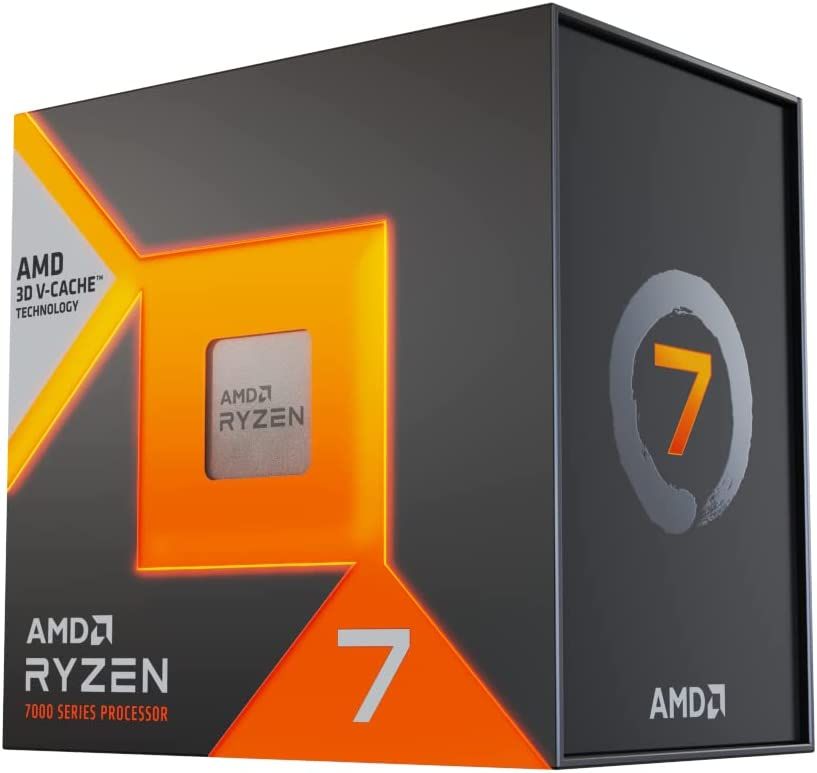
AMD Ryzen 7 7800X3D
The Best Overall CPU For Gaming
Octa-core Performance Crowned By 3D V-Cache
$386 $449 Save $63
The AMD Ryzen 7 7800X3D is AMD’s latest and greatest CPU when it comes to gaming. With an excellent and highly efficient gaming performance that tops the charts currently, the Ryzen 7 7800X3D is here to stay and has a crown to claim thanks to its 3D V-Cache-enabled prowess when it comes to gaming on a PC.
The octa-core CPU currently happens to be the fastest in the business for gaming even as it leads efficiency charts at the top, making it a very sought-after gaming upgrade.
- Brand
- AMD
- CPU Model
- Ryzen 7 7800X3D
- CPU Socket
- AM5
- Cores
- 8
- Threads
- 16
- PCIe 4.0 Support
- Yes, Supports up to PCI-E 5.0
- Architecture
- Zen 4
- Process
- 5nm
- Base Clock Speed
- 4.2GHz
- Boost Clock Speed
- 5.0GHz
- Cache
- 8MB L2 + 96MB L3
- TDP
- 120W
- iGPU
- Yes, Integrated Radeon 2 Core
- Continues to be the fastest CPU money can buy for gaming
- Much cheaper than Intel’s and AMD’s highest core count CPUs while offering better gaming performance
- Extremely power efficient versus the competition
- Pricey for an 8-core CPU relative to alternatives that offer up to 24 cores
- Lackluster multicore performance relative to higher-end options from Intel & AMD
The AMD Ryzen 7 7800X3D is Game Rant’s undisputed pick for the best and fastest CPU for gaming which also doubles as the best AMD CPU for gaming. Its 8-Core, 16-Thread offerings might be more akin to mid-range Intel and AMD offerings, but the ace up its sleeve is its impressive 3D V-Cache that allows the 7800X3D to sport a whopping 96MB of L3 Cache, making it one of the fastest performing CPUs across multiple tests as it completely obliterates AMD’s 7000 series processors while scoring high more often than not versus Intel’s latest and greatest 14th generation CPUs.
At $450 a pop, this isn’t the cheapest CPU out there, but it doesn’t have to be given that it is the fastest one that gamers can buy. Thanks to it being on the new AM5 platform, it also has support for PCI-E 5.0 and DDR5 memory while running at significantly lower power than its competition, often at half or lower power draw, averaging an approximate 50W across titles in terms of power consumption reported at a CPU level.
All in all, it is an excellent CPU for gaming with efficiency and speed both important factors in it being our best overall pick for gaming as it is both the fastest overall AMD CPU and overall in terms of benchmarked gains. For creators that need the speeds the 7800X3D offers but who also want extra multicore performance or power under the hood, AMD also offers a similarly performing 16-core version of the same, albeit at a higher price in the shape of the Ryzen 9 7950X3D.
The Ryzen 7 7800X3D maintains its top position on GR’s list simply due to its virtue of being the fastest CPU for gaming across the board, taking out both AMD and Intel’s CPU offerings with ease in terms of raw performance as it taps into its large stacked 3D V-cache to excellent effect in the most demanding of gaming titles with ease. It also trades at a significant discount in response to Intel’s latest 14th-generation CPUs while juggling excellent availability from AMD.
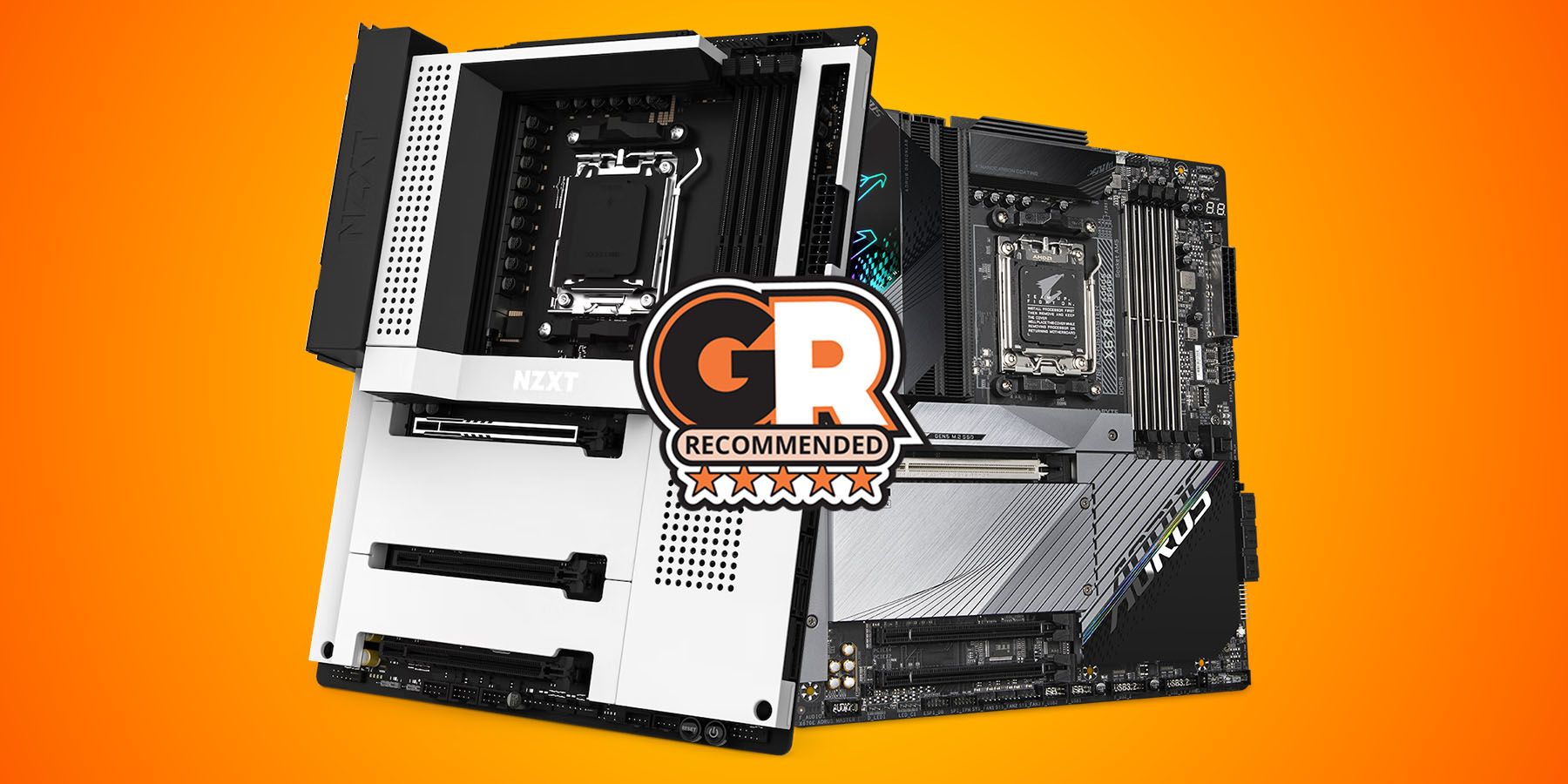
The Best Motherboards To Pair With The AMD Ryzen 7 7800X3D
Here are some of the best motherboards to consider pairing with the AMD Ryzen 7 7800X3D.

Intel Core i9 14900K 24-Core, 32-Thread CPU
The Best Performance CPU For Gaming
Core Heavy 6GHz Refresh Contender
$549 $650 Save $101
The Intel Core i9 14900K 24-Core, 32-Thread CPU is Intel’s highest-end 14th generation CPU and offers the highest boost clocks for a consumer-grade CPU from Intel to date, clocking in at an impressive 6 GHz natively.
It succeeds the limited-release Intel Core 13900KS as the first mainstream 6 GHz CPU, even as it brings a large power draw and thermal requirement in tow to reach said clock speed.
- Brand
- Intel
- CPU Model
- Core i9 14900K
- CPU Socket
- LGA 1700
- Cores
- 24 (8P + 16E)
- Threads
- 32
- Architecture
- Raptor Lake (Refresh)
- Process
- Intel 7 (10 nm)
- Base Clock Speed
- 3.2 GHz
- Boost Clock Speed
- 6 GHz
- Cache
- 32MB L2 + 36MB L3 Cache
- TDP
- 253 W
- PCIe
- PCI-E 4.0/5.0 supported
- Graphics
- Intel UHD Graphics 770
- Highest single-thread performance out of all mainstream CPUs
- Clocks up to 6GHz with adequate cooling and power
- Excellent multicore performance thanks to its 24-core, 32-thread offering
- Has the fastest performance in certain titles
- Significantly high power requirements versus the competition
- Has a demanding AIO requirement to allow it to perform sustainably at its advertised 6 GHz clock speeds
- Considerably more expensive than its competition
The Intel Core i9 14900K is a powerful 24-core, 32-thread CPU that replaces the Intel Core i9 13900K. However, it has more in common with its higher-clocked, limited-release sibling, the Intel Core i9 13900KS. Both CPUs can clock up to 6GHz easily with supporting hardware out of the box. The CPU, which is otherwise identical to its predecessor, replaces it at the same MSRP of $589 but offers better performance due to higher clocks on both its 8 performance and 16 efficiency cores.
It aims to close the gap on the gaming lead that AMD currently enjoys due to its cache-heavy Ryzen 7 7800X3D thanks to its increased clock speeds. It also offers substantial value thanks to its strong multicore, multithreaded performance. This makes it more than just a gaming CPU but a more well-rounded workhorse that delivers on multiple fronts even as it emerges as a key contender for the best gaming CPU in 2024.
Intel also continues to leverage AI in its tweaking tools to find even higher clocks in ideal situations for overclockers using its XTU (Intel Extreme Tuning Utility) software. That can result in the 14900K offering a better experience out of the box in certain setups even as the Intel® Application Optimization (APO) approach finds increasing support from titles such as World of Warcraft that leverage its scheduler optimizations to deliver better performance compared to its competition even as Intel plans to allow for support for Intel 12th and 13th generation CPUs down the line.
The Intel Core i9 14900K can be found trading at a sub $40 discount at multiple retailers currently, clocking in at just $550 at certain retailers (and potentially lower in bundles), making it a much more acceptable alternative to AMD’s 16-Core Zen4-based Ryzen 9 7950X3D juggernaut that commands an $100 premium currently while offering similar multicore performance in tow.
Note: Intel is currently offering a free copy of Ghostrunner 2 for 14th-generation Intel CPUs purchased via participating retailers including some listed above.
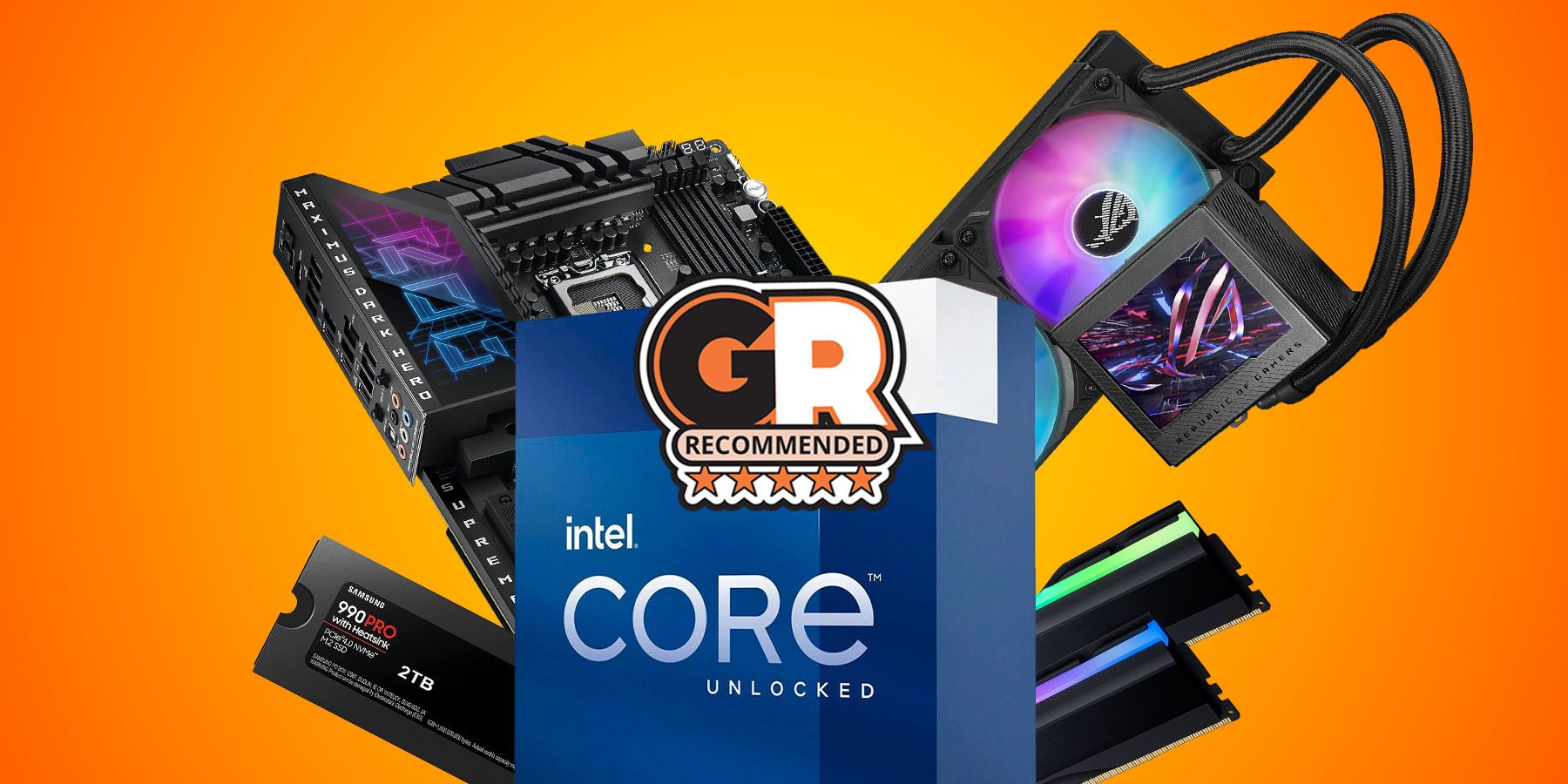
The Best Custom Intel Core i9 14900K PC Builds
Game Rant has put together a set of PC builds that are designed to take full advantage of Intel Core i9 14900K at three different performance tiers.

AMD Ryzen 5 7600X
Best Mid-Range CPU For Gaming
Budget Zen 4 Gaming
$199 $229 Save $30
Gamers interested in upgrading to a newer CPU from Team Red will find the AMD Ryzen 5 7600X to be of spectacular value thanks to its high single-core performance, efficient hexacore architecture, and compatibility with newer technology such as PCI-E 5.0 and DDR5 memory. It also abandons AMD’s AM4 design, going for a pin-less processor offering by moving them to the motherboard instead.
- Brand
- AMD
- CPU Model
- Ryzen 5 7600X
- CPU Socket
- AMD AM5
- Cores
- 6
- Threads
- 12
- PCIe 4.0 Support
- PCI-E 5.0 and lower
- Base Clock Speed
- 4.7 GHz
- Boost Clock Speed
- 5.3 GHz
- Cache
- 6MB L2 + 32MB L3 Cache
- RAM
- Up to 128 GB DDR5 5000 MHz
- TDP
- 105W
- UserBenchmark Ranking
- 27th
- iGPU
- 2-Core AMD Radeon Graphics
- Relatively power efficient compared to the competition
- Replaces the AMD Ryzen 7 5800X3D with faster speeds and a much lower cost while leveraging a newer AM5 socket for easier upgrades
- Handles most modern games considerably well within its price range
- Extremely price-competitive when on sale at a sub-$200 price tag
- Still gets considerably beaten by the competing Intel Core i5 13600k in most multi-core benchmarks
- Six cores might be a limiting factor in the future as games continue to increasingly benefit from higher core counts
The 6-Core, 12-Thread AMD Ryzen 5 7600X is an excellently positioned processor thanks to a barrage of price cuts over time that see it trade at significant price discounts over its original MSRP. It is a step up to the AM5 platform as a compelling, slightly cheaper alternative to the now-aging 5800X3D which it outperforms slightly in modern games due to its newer underlying architecture, better memory support, and higher boost clocks than the locked AM4-based processor.
With decent single-core performance and somewhat underwhelming multicore performance, the Ryzen 5 7600X is also a considerable $80-100 cheaper than the Intel Core i5 13600K that it is regularly compared with. A fairer comparison would be the Intel Core i5 13500 which it does go neck and neck with; it has arguably better single-core performance and much worse multicore performance. Multiple games tend to favor single-core performance, making the 7600X an excellent, current-gen mid-range AMD CPU for gaming that has grown increasingly competitive.
It currently trades at an impressive discount at multiple retailers, clocking in just shy of $200, making it a no-brainer given its strong performance in games and relatively less demanding nature in terms of thermal needs versus most of its performance alternatives from Intel.
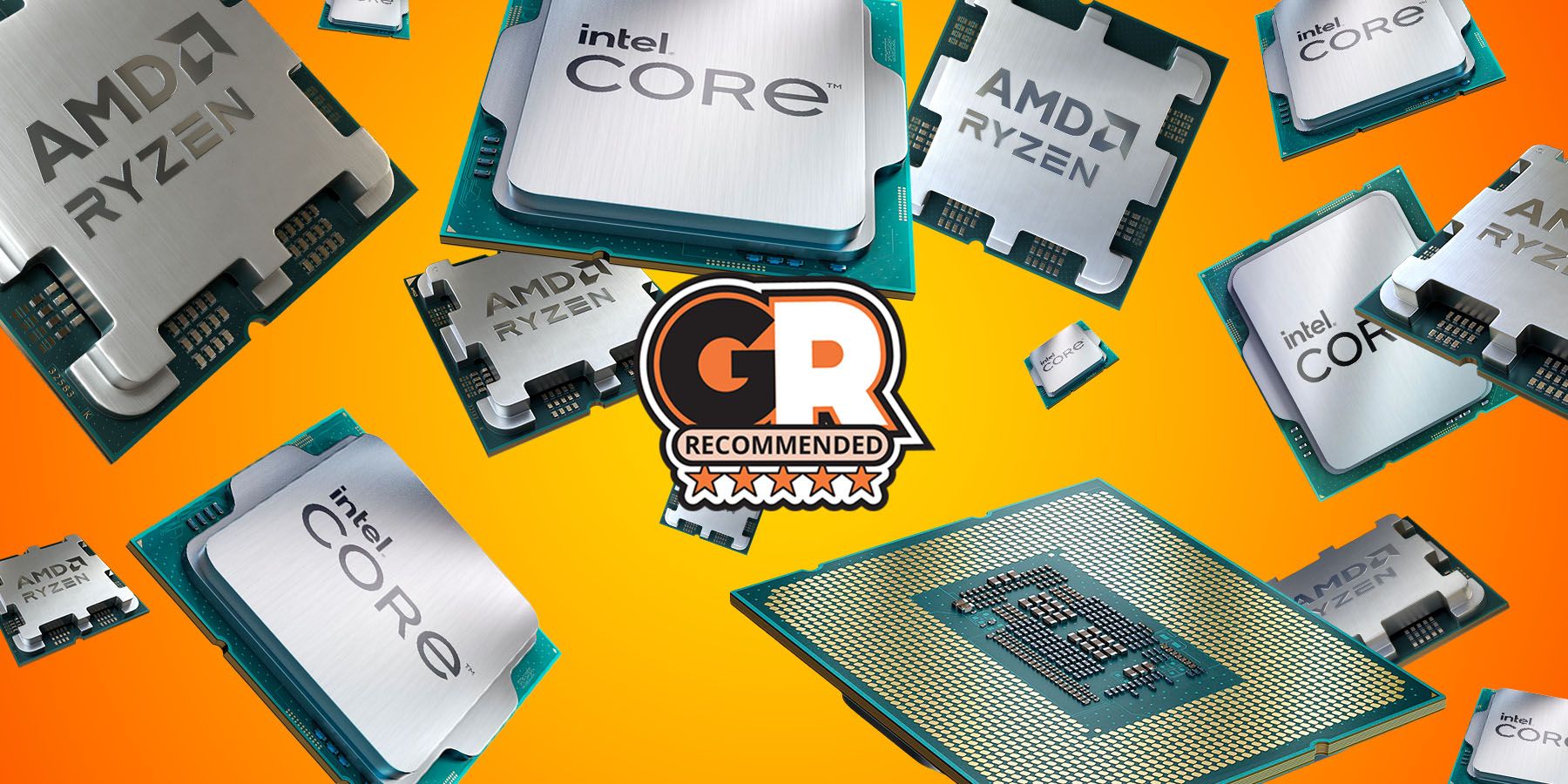
The Best Budget CPUs for Gaming
Here are some of the best gaming CPUs that can be bought without breaking the bank.

Intel Core i5 14600KF 14-Core, 20-Thread CPU
Best Value CPU For Gaming
Value-Centric 14-Core Unlocked CPU
$285 $304 Save $19
The Intel Core i5 14600KF 14-Core, 20-Thread CPU is a powerful mid-range CPU that replaces the last generation Intel Core i5 13600KF with higher clocks on both its performance and efficiency cores.
Like all its siblings, it does offer better performance out-of-the-box versus its predecessors but replaces them at the same price points they sold last year. Unlike the Intel Core i5 14600K, this model trades at a small discount thanks to it skipping out on integrated graphics.
- Brand
- Intel
- CPU Model
- Core i5 14600KF
- CPU Socket
- LGA 1700
- Cores
- 14 (6P + 8E Cores)
- Threads
- 20
- Base Clock Speed
- 3.5 GHz
- Boost Clock Speed
- 5.3 GHz
- Cache
- 20MB L2 + 24MB L3 Cache
- RAM
- Up to 192GB DDR5
- Architecture
- Raptor Lake Refresh
- Process
- Intel 7 (10 nm)
- PCIe
- PCI-E 4.0/5.0
- Graphics
- N/A
- Power Draw
- 181W (Turbo)
- Excellent single-core performance
- More cores than its AMD competition
- Costs the same as the Intel Core i5 13600KF which it replaces
- Requires a discrete GPU to function
- Somewhat demanding in terms of cooling requirements versus its alternatives
The Intel Core i5 14600KF is Intel’s answer to the mid-range Ryzen 5 7600X and Ryzen 7 7700X as it offers more cores, better gaming performance, and higher clocks than its predecessor in a bid to replace the very well-received Intel Core i5 13600K/KF CPUs. The 14-core, 20-thread CPU offers better performance thanks to it pushing its Raptor Lake Refresh cores just short of the last generation 13700K.
Part of its value addition is due to its cheaper MSRP versus the 14600K which offers an integrated GPU to end-users that need one. While it is an excellent addition for most casual users, it is woefully inadequate for gaming uses. The saved money is nearly always better spent on a discrete GPU offering instead of a redundant on-chip solution when it comes to gamers.
However, the 14600KF does need a dGPU from the get-go so users looking to delay an upgrade would need to keep one handy irrespective of the use of the CPU, which also requires pairing with a decent cooling solution to ensure it doesn’t throttle thermal during extended gaming sessions. All in all, while Intel’s latest upgrade does the bare minimum, it replaces a very competitive CPU and without any major overtures from AMD, one that continues to dominate its position at a price point that sits notoriously close to the Ryzen 7 7700X while drawing favorable comparisons.
Note: Intel is currently offering a free copy of Ghostrunner 2 for 14th-generation Intel CPUs purchased via participating retailers including some listed above.

AMD Ryzen 5 5600X CPU
The Best Budget CPU For Gaming
Hexa-core Entry-level Processor
The AMD Ryzen 5 5600X is a midrange CPU, excellent for gaming setups. This is the fastest six-core AM4-based processor from AMD and features 12 processing threads. According to the company, the processor can deliver 100-plus FPS performance in the world’s most popular games. The processor supports DDR4 memory with a sweet spot of 3600MHz.
It offers 4.6 GHz boost clock speeds out of the box with overclocking potential in tow coupled with 35 MB of cache. This model comes bundled with a quiet and capable AMD Wraith Stealth cooler.
- Brand
- AMD
- CPU Model
- 5600X
- CPU Socket
- AMD AM4
- Cores
- 6
- Threads
- 12
- PCIe 4.0 Support
- PCI-E 4.0
- Base Clock Speed
- 3.7GHz
- Boost Clock Speed
- 4.6GHz
- Cache
- 3MB L2 + 32MB L3
- Graphics
- N/A
- TDP
- 105W
- Excellent cheap, value-for-money-processor
- Plethora of cheap motherboard and memory options
- Decent single-core and multicore performance in its own price bracket
- Dated AM4 Platform-based processor
- Beaten comprehensively by even lower-end Intel CPUs in the 13th gen for single-core performance
AMD’s last generation 6-core, 12-thread Ryzen 5 5600X processor still packs a punch and offers great value versus some of Intel and AMD’s other entry-level offerings thanks to its capable hexacore Zen 3-based offerings. The 5600X lacks integrated graphics much like AMD’s other 5000 series CPUs. However, it offers decent single-core performance, albeit with lower clocks and performance than Intel’s 12th and 13th-generation processors. It benefits from a very mature AM4 platform with motherboards available at various price points. Unlike its newer 7600X sibling, it works fine with most user’s existing DDR4 memory out of the box.
Deeper discounts by AMD on the newer Ryzen 7000 series since the launch of the 7000 X3D processor offerings mean that the 5600X is no longer as popular as it used to be as a value purchase. For gamers with an AM4 motherboard or DDR4 memory spare (or anyone simply looking for an AM4-based upgrade), the Ryzen 5 5600X is still a capable processor that does not meaningfully bottleneck most games at 1080P or higher resolutions.
With a stock cooler in tow and an unlocked processor design, the Ryzen 5 5600X delivers excellent value, decent performance, and a cost-effective upgrade to users already on the AM4 platform, even in 2024 without breaking the bank.
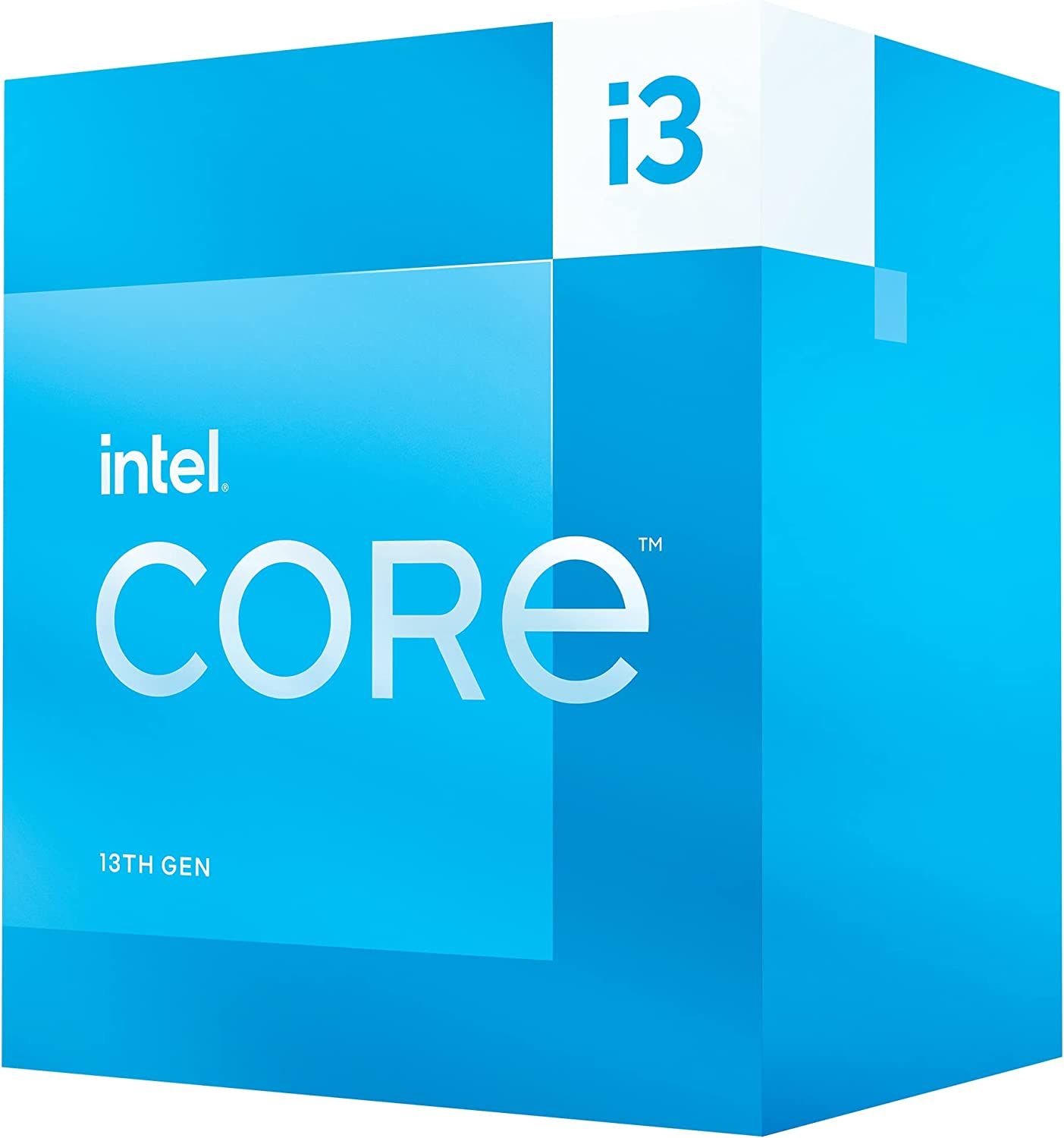
Intel Core i3-13100
The Best Entry-Level CPU For Gaming
Quad-Core Budget Juggernaut
$148 $150 Save $2
The Intel Core i3-13100 is a 4-Core, 8-Thread Raptor Lake-based CPU that is decent for entry-level gaming while offering access to both, newer tech and a solid upgrade path thanks to it being from the latest 13th-generation Intel CPU offerings. It delivers acceptable single-core and somewhat lackluster multicore performance given its limitations of being a quad-core CPU consisting entirely of Rocket Lake P-Cores.
- Brand
- Intel
- CPU Model
- Core i3 13100
- CPU Socket
- LGA 1700
- Cores
- 4 P-Cores
- Threads
- 8 Threads
- Architecture
- Raptor Lake
- Process
- Intel 7 (10Nm)
- Base Clock Speed
- 3.4 GHz
- Boost Clock Speed
- 4.5 GHz
- Cache
- 12MB L3, 5MB L2 Cache
- RAM
- N/A
- PCIe
- PCI-E 4.0 and 5.0 Supported
- Graphics
- Intel UHD Graphics 730
- TDP
- 89 W Turbo, 60 W Base Power
- offers decent single-core performance
- Excellent value for a budget esports-centric PC build
- Has an upgrade path to higher end 12th, 13th or 14th-generation Intel CPUs
- 4-core, 8-thread config CPU might be dated or obsolete out of the box
The Intel Core i3 13100 is essentially a slightly higher-clocked version of the Intel Core i3 12100 with performance remaining locked within a similar range with it able to Turbo to as much as 4.5 GHz versus the 4.3 GHz its predecessor offered. It is a great quad-core CPU that serves as an entry into Intel’s more expensive backyard of 13th-generation core series processors with an upgrade possible down the line for most users as both Intel and AMD compete increasingly fiercely in this market segment.
One would however want to consider that buying a quad-core CPU, even at an entry-level price, might not be an ideal play to make for gamers, power users, or creators as apps continue to become more power-hungry, requiring more multithreaded horsepower under the hood than before even as games keep a relatively strong single-core bias. All in all, the Intel Core i5 13100 is a capable processor, somewhat limited by core count and subsequent thread counts, but it makes up for it somewhat thanks to the price point it aims to be competitive at.
With no new current-gen AMD offerings in the same price segment in 2024, it is as good as any for gamers. The closest alternative available to gamers currently from Team Red is the $180 MSRP touting Ryzen 5 7500F which is relatively hard to locate in the US while skipping an iGPU, making the 13100 a significantly better value purchase with a sub-$150 price tag in tow. Users can also opt for the iGPU-less Intel Core i3 13100F instead which offers significantly better value for money for gamers who will nearly always opt for a discrete GPU down the line.
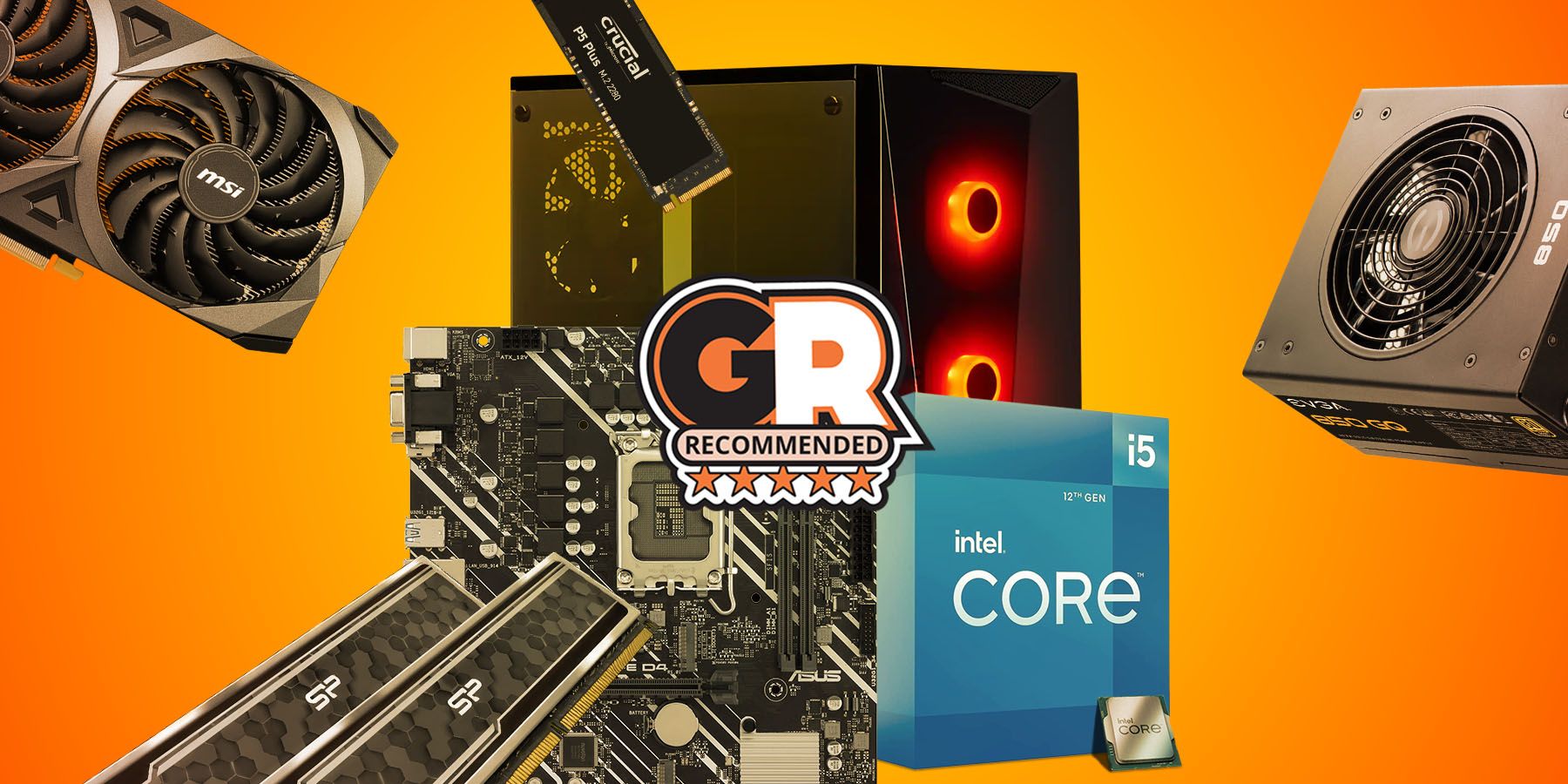
The Best Gaming PC Builds For $1000
Building a gaming PC individually just became easier as Game Rant showcases three of the best and most balanced PC builds.
FAQ
Q: Why is single-core performance so important for games?
Video games are complex code structures that often consist of millions of lines of code. As a result, they are often unable to fully exploit multicore performance as one thread or core often bears the brunt of our game-centric demands of the CPU.
This is often demonstrated as an existing bias in terms of raw performance in multiple game titles that rely on it as a good benchmark of how well the title will run on a modern processor such as the Intel Core i9 14900K which can push 6GHz and leads single thread charts currently.
Q: Which processors come with a CPU cooler?
All locked Intel processors come with a stock CPU cooler in the box. All unlocked Intel CPUs ship without one as users are expected to use adequate cooling to get more performance out of the CPU in an overclocked state.
For AMD, this seems to be more centric to which tier the CPU belongs to; cheaper CPUs tend to have stock coolers on offer as more expensive, larger CPUs including those for gaming seem to skip on one altogether.